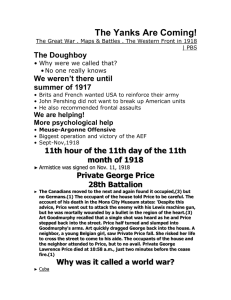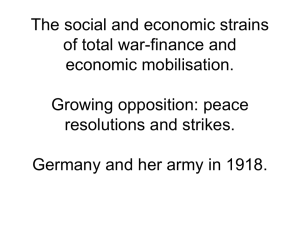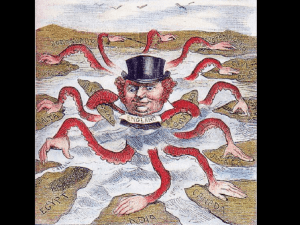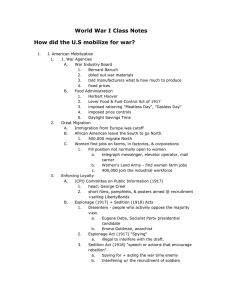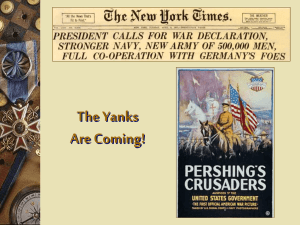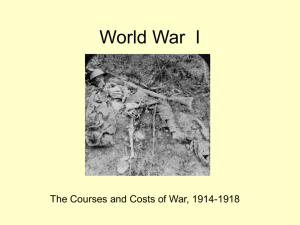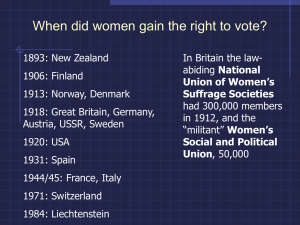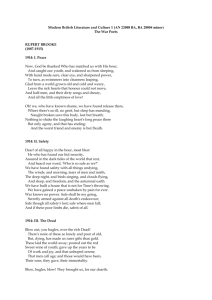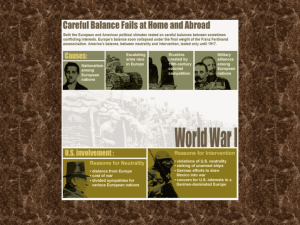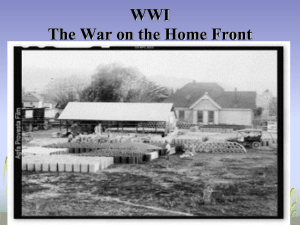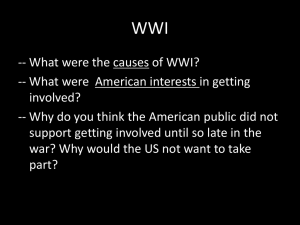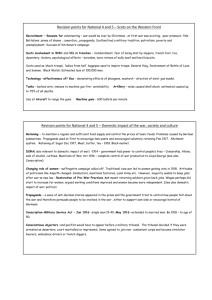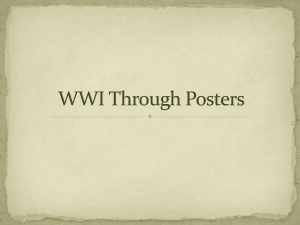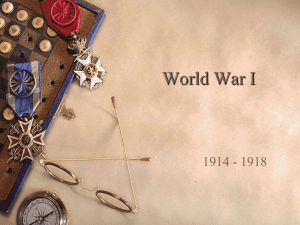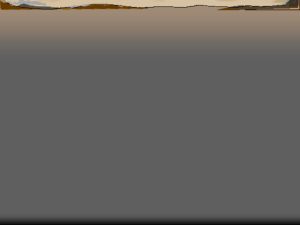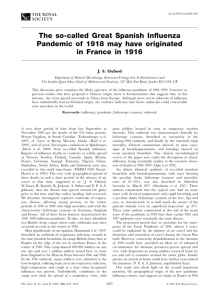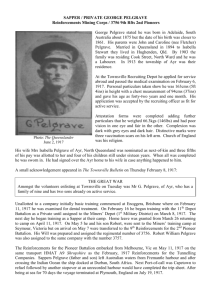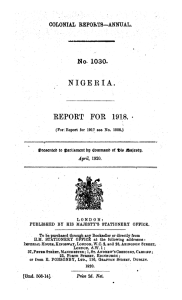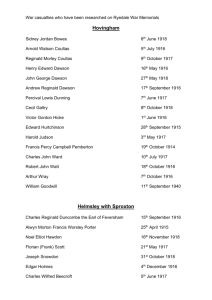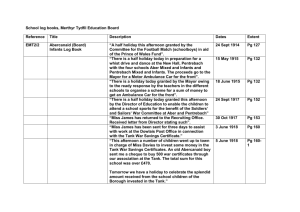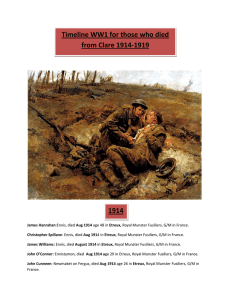Robert Graves
advertisement
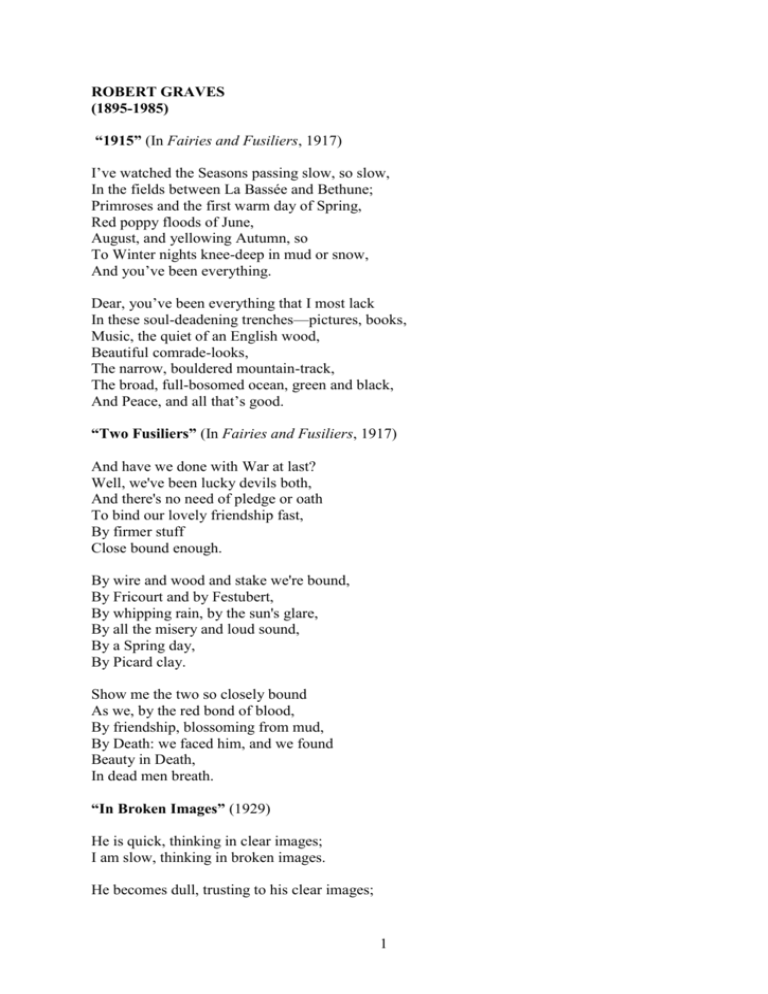
ROBERT GRAVES (1895-1985) “1915” (In Fairies and Fusiliers, 1917) I’ve watched the Seasons passing slow, so slow, In the fields between La Bassée and Bethune; Primroses and the first warm day of Spring, Red poppy floods of June, August, and yellowing Autumn, so To Winter nights knee-deep in mud or snow, And you’ve been everything. Dear, you’ve been everything that I most lack In these soul-deadening trenches—pictures, books, Music, the quiet of an English wood, Beautiful comrade-looks, The narrow, bouldered mountain-track, The broad, full-bosomed ocean, green and black, And Peace, and all that’s good. “Two Fusiliers” (In Fairies and Fusiliers, 1917) And have we done with War at last? Well, we've been lucky devils both, And there's no need of pledge or oath To bind our lovely friendship fast, By firmer stuff Close bound enough. By wire and wood and stake we're bound, By Fricourt and by Festubert, By whipping rain, by the sun's glare, By all the misery and loud sound, By a Spring day, By Picard clay. Show me the two so closely bound As we, by the red bond of blood, By friendship, blossoming from mud, By Death: we faced him, and we found Beauty in Death, In dead men breath. “In Broken Images” (1929) He is quick, thinking in clear images; I am slow, thinking in broken images. He becomes dull, trusting to his clear images; 1 I become sharp, mistrusting my broken images. Trusting his images, he assumes their relevance; Mistrusting my images, I question their relevance. Assuming their relevance, he assumes the fact; Questioning their relevance, I question the fact. When the fact fails him, he questions his senses; When the fact fails me, I approve my senses. He continues quick and dull in his clear images; I continue slow and sharp in my broken images. He in a new confusion of his understanding; I in a new understanding of my confusion. WILFRED OWEN (1893 - 1918) “Dulce Et Decorum Est” (October, 1917-March, 1918) Bent double, like old beggars under sacks, Knock-kneed, coughing like hags, we cursed through sludge, Till on the haunting flares we turned our backs And towards our distant rest began to trudge. Men marched asleep. Many had lost their boots But limped on, blood-shod. All went lame; all blind; Drunk with fatigue; deaf even to the hoots Of tired, outstripped Five-Nines that dropped behind. Gas! GAS! Quick, boys! - An ecstasy of fumbling, Fitting the clumsy helmets just in time; But someone still was yelling out and stumbling, And flound'ring like a man in fire or lime... Dim, through the misty panes and thick green light, As under a green sea, I saw him drowning. In all my dreams, before my helpless sight, He plunges at me, guttering, choking, drowning. If in some smothering dreams you too could pace Behind the wagon that we flung him in, And watch the white eyes writhing in his face, His hanging face, like a devil's sick of sin; If you could hear, at every jolt, the blood Come gargling from the froth-corrupted lungs, Obscene as cancer, bitter as the cud Of vile, incurable sores on innocent tongues, - 2 My friend, you would not tell with such high zest To children ardent for some desperate glory, The old Lie: Dulce et decorum est Pro patria mori. “Futility” (May, 1918) Move him into the sun Gently its touch awoke him once, At home, whispering of fields unsown. Always it woke him, even in France, Until this morning and this snow. If anything might rouse him now The kind old sun will know. Think how it wakes the seeds, Woke, once, the clays of a cold star. Are limbs, so dear-achieved, are sides, Full-nerved, - still warm, - too hard to stir? Was it for this the clay grew tall? - O what made fatuous sunbeams toil To break earth's sleep at all? “Anthem for Doomed Youth” (September-October, 1917) What passing-bells for these who die as cattle? - Only the monstrous anger of the guns. Only the stuttering rifles' rapid rattle Can patter out their hasty orisons. No mockeries now for them; no prayers nor bells; Nor any voice of mourning save the choirs, The shrill, demented choirs of wailing shells; And bugles calling for them from sad shires. What candles may be held to speed them all? Not in the hands of boys, but in their eyes Shall shine the holy glimmers of good-byes. The pallor of girls' brows shall be their pall; Their flowers the tenderness of patient minds, And each slow dusk a drawing-down of blinds. “The Parable of the Old Man and the Young” (July, 1918) So Abram rose, and clave the wood, and went, And took the fire with him, and a knife. And as they sojourned both of them together, Isaac the first-born spake and said, My Father, Behold the preparations, fire and iron, But where the lamb for this burnt-offering? Then Abram bound the youth with belts and straps, 3 And builded parapets and trenches there, And stretched forth the knife to slay his son. When lo! an angel called him out of heaven, Saying, Lay not thy hand upon the lad, Neither do anything to him. Behold, A ram, caught in a thicket by its horns; Offer the Ram of Pride instead of him. But the old man would not so, but slew his son, And half the seed of Europe, one by one. “Strange Meeting” (January-March, 1918) It seemed that out of battle I escaped Down some profound dull tunnel, long since scooped Through granites which titanic wars had groined. Yet also there encumbered sleepers groaned, Too fast in thought or death to be bestirred. Then ,as I probed them, one sprang up, and stared With piteous recognition in fixed eyes, Lifting distressful hands, as if to bless. And by his smile, I knew that sullen hall, By his dead smile I knew we stood in Hell. With a thousand pains that vision's face was grained; Yet no blood reached there from the upper ground, And no guns thumped, or down the flues made moan. 'Strange friend,' I said, 'here is no cause to mourn.' 'None,' said that other, 'save the undone years, The hopelessness. Whatever hope is yours, Was my life also; I went hunting wild After the wildest beauty in the world, Which lies not calm in eyes, or braided hair, But mocks the steady running of the hour, And if it grieves, grieves richlier than here. For by my glee might many men have laughed, And of my weeping something had been left, Which must die now. I mean the truth untold, The pity of war, the pity war distilled. Now men will go content with what we spoiled, Or, discontent, boil bloody, and be spilled. They will be swift with swiftness of the tigress. None will break ranks, though nations trek from progress. Courage was mine, and I had mystery, Wisdom was mine, and I had mastery: To miss the march of this retreating world Into vain citadels that are not walled. Then, when much blood had clogged their chariot-wheels, I would go up and wash them from sweet wells, 4 Even with truths that lie too deep for taint. I would have poured my spirit without stint But not through wounds; not on the cess of war. Foreheads of men have bled where no wounds were. I am the enemy you killed, my friend. I knew you in this dark: for so you frowned Yesterday through me as you jabbed and killed. I parried; but my hands were loath and cold. Let us sleep now...' SIEGFRIED SASSOON (1886–1967) “Wirers” (April, 1919) "Pass it along, the wiring party's going out"-And yawning sentries mumble, "Wirers going out," Unravelling; twisting; hammering stakes with muffled thud, They toil with stealthy haste and anger in their blood. The Boche sends up a flare. Black forms stand rigid there, Stock-still like posts; then darkness, and the clumsy ghosts Stride hither and thither, whispering, tripped by clutching snare Of snags and tangles. Ghastly dawn with vaporous coasts Gleams desolate along the sky, night's misery ended. Young Hughes was badly hit; I heard him carried away, Moaning at every lurch; no doubt he'll die to-day. But _we_ can say the front-line wire's been safely mended. “Enemies” (date unknown) HE stood alone in some queer sunless place Where Armageddon ends. Perhaps he longed For days he might have lived; but his young face Gazed forth untroubled: and suddenly there thronged Round him the hulking Germans that I shot When for his death my brooding rage was hot. He stared at them, half-wondering; and then They told him how I’d killed them for his sake— Those patient, stupid, sullen ghosts of men; And still there seemed no answer he could make. At last he turned and smiled. One took his hand Because his face could make them understand. 5
